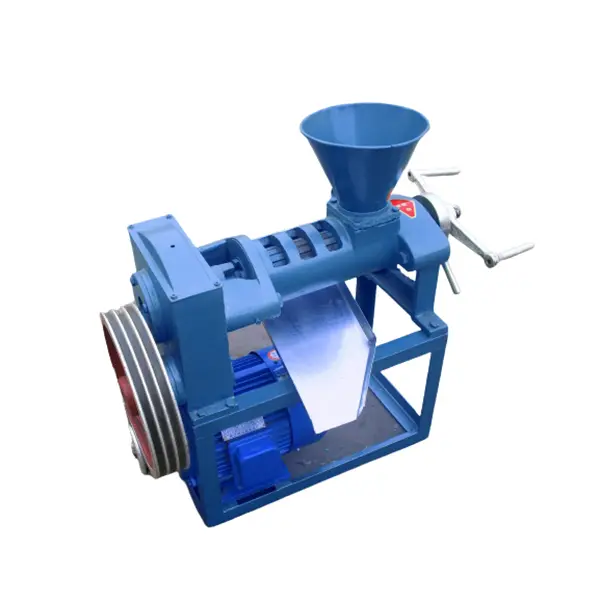Nov . 18, 2024 20:30 Back to list
seed oil refined unit product
The Role of Seed Oil Refining Units in Modern Agriculture and Industry
In recent years, the demand for plant-based oils has surged, driven by changes in dietary preferences and industrial applications. Among these oils, seed oils, derived from various oilseed crops, hold a significant place. The refining of these oils is a crucial step in ensuring their quality, shelf life, and suitability for consumption and industrial use. This article explores the significance of seed oil refining units, their processes, and the impact they have on agriculture and the economy.
Understanding Seed Oil Refining
Seed oil refining is a process that transforms crude oil extracted from seeds into edible and usable forms. The process typically involves several stages, including degumming, neutralization, bleaching, and deodorization. Each of these steps plays a vital role in eliminating impurities and undesirable components from the oil, making it safe and appealing for consumers.
1. Degumming This initial step removes phospholipids and other impurities, which can adversely affect the oil's flavor and stability. 2. Neutralization In this stage, free fatty acids are removed through the use of alkaline substances, which results in a more stable oil that has a longer shelf life. 3. Bleaching This process utilizes adsorbents to remove color pigments and oxidized products, improving the oil's appearance and taste. 4. Deodorization Finally, the oil is subjected to high temperatures and steam, which eliminates undesirable odors and flavors, resulting in a neutral and refined oil ready for various applications.
Importance of Seed Oil Refinery Units
Seed oil refining units serve a critical role in the agricultural and food processing industries. Their importance can be viewed through multiple lenses
- Quality Assurance By refining oils, these units ensure that the final product is safe for consumption
. Regulatory standards necessitate that edible oils meet specific quality criteria, and refinery units are instrumental in achieving these standards.- Waste Reduction The refining process can also contribute to waste minimization. By recovering and repurposing by-products generated during oil extraction and refining, these units can improve overall efficiency and reduce the environmental impact of oil production.
- Economic Impact The refining sector not only provides jobs but also creates a market for oilseed farmers. As the demand for refined seed oils increases globally, the economic viability of oilseed crops becomes stronger, encouraging farmers to adopt sustainable agricultural practices.
seed oil refined unit product

- Versatility and Applications Refined seed oils are used in diverse industries, including food, cosmetics, pharmaceuticals, and biodiesel production. Their versatility makes them valuable commodities in both local and international markets.
Challenges Faced by Seed Oil Refining Units
Despite their benefits, seed oil refining units face several challenges. Fluctuating raw material prices, changes in consumer preferences, and increasing regulatory pressures can impact operational efficiency and profitability. Moreover, with the rising trend of health-conscious consumers, there is a growing demand for unrefined and cold-pressed oils, which may necessitate a shift in refining strategies.
Additionally, environmental concerns regarding oil refining processes have prompted a closer look at sustainability practices. Refiners are now exploring innovative methods to minimize waste and energy consumption, aligning their operations with green initiatives and eco-friendly standards.
The Future of Seed Oil Refining
As the global appetite for edible oils continues to grow, the future of seed oil refining units looks promising. Advancements in technology and processing techniques are enabling refiners to enhance oil quality while maintaining sustainability. Concepts such as zero-waste processing and the integration of renewable energy sources are gaining traction within the industry.
Furthermore, as consumers become more educated about the health benefits of various oils, the demand for specialty seed oils—such as those rich in omega fatty acids—is expected to rise. This trend indicates a potential shift in market dynamics, urging refining units to innovate and adapt to changing consumer needs.
Conclusion
In conclusion, seed oil refining units play a pivotal role in ensuring the quality and safety of edible oils while supporting agricultural economies. Despite facing challenges, the sector is transforming, with a focus on sustainability and adaptability. As the global demand for seed oils increases, these refining units will be essential in shaping the future of food and industrial applications.
-
Top Food Oil Refined Unit Companies w/ GPT-4 Turbo Tech
NewsAug.01,2025
-
Premium Black Seed Oil Expeller - High Efficiency Cold Press Oil Machine
NewsJul.31,2025
-
Oil Processing Equipment - High-Efficiency Flaking Machine
NewsJul.25,2025
-
High-Efficiency Peanut Oil Refined Machine for Quality Oil Production Leading Exporters & Companies
NewsJul.08,2025
-
High Efficiency Sunflower Seed Oil Press – Leading Cooking Oil Press Machine Factories & Suppliers
NewsJul.08,2025
-
High-Efficiency Soybean Oil Press Machine – Leading Exporters & Reliable Companies
NewsJul.07,2025
